September 2, 2024
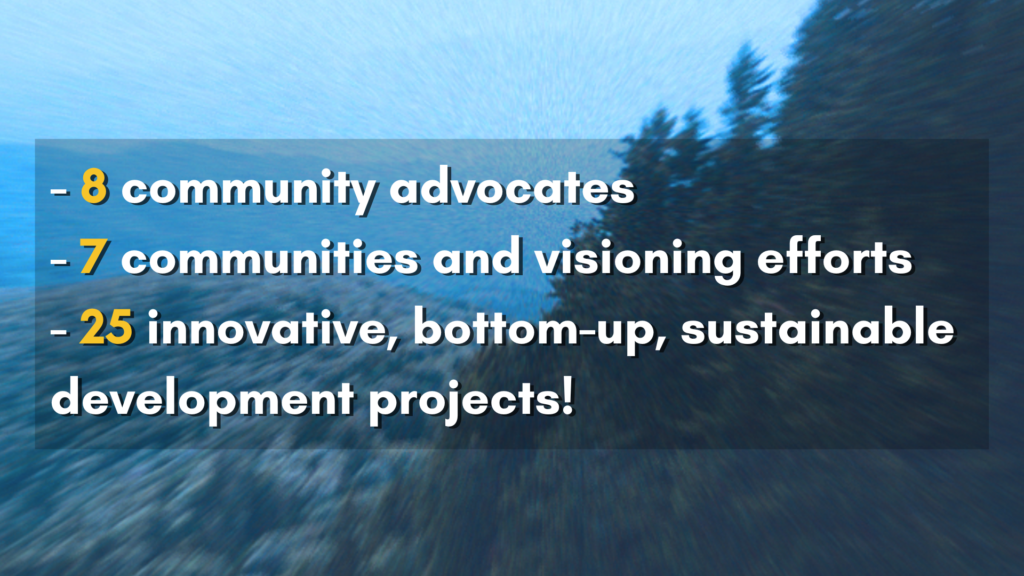
Appalachian leaders showcase projects designed to help communities across the region
This past July, ReImagine Appalachia held our first-ever ReImagine Your Community Showcase. Our 2023-2024 Cohort included eight leaders from seven different communities across Ohio, West Virginia, and Pennsylvania. Over ten months, these community leaders attended monthly meetings for skills and topic-based training.
Participants used our ReImagine Your Community Sustainable Economy Toolkit to create projects that promote sustainable economic growth in their communities. The projects vary widely, from creating a timber co-op and providing workforce training for energy-efficient homes to building a local fruit and nut processing facility and designing an agritourism map of regional food forests. During the Showcase, participants presented their projects and connected with organizations and stakeholders for future collaboration, including support for capacity building and technical assistance to help turn their vision into a reality.
A special thank you to our network of supporters who attended the Showcase and provided detailed feedback! We’re so excited and proud to share the incredible work of our RYC cohort! Use this tool to take a moment to dig into the specifics of the work discussed at the Showcase.
So, what did they come up with?
Annie Warmke, Marietta, OH

Annie Warmke is an award-winning activist who is an award-winning social entrepreneur – working for social change in the early days of programs for prevention of violence against women and children (1980-2001), and now as a pioneer in the sustainability movement (1994-present). Annie currently serves on the boards of the Women’s Initiative Network, Women’s Peacepower Foundation and works as a consultant to various organizations and farms. She is the founder of Women Grow Ohio, and Buffalo Gals Voices. Annie has written widely on violence against women, and also authored several books related to living sustainably. Annie served as the project manager and building of Blue Rock Station, the heart of the premier sustainable living center in Ohio. Along with her husband she is part of a nationally syndicated podcast – When the Biomass Hits the Wind Turbine. Her latest project is designing and building a food forest gardens business.
Presentation: Annie Warmke Marietta Neighborhood Group Presentation
Annie’s Projects
The Neighborhood Food Forest Arboretum Project
The goal is to create neighborhood hubs where people gather to connect in various ways including helping others but also organizing to safeguard the neighborhood’s trees, and infrastructure. The initial envisioning led to the idea of developing a plan to turn the Oak Grove Cemetery into an arboretum with a food forest garden and hiking path. The cemetery is located in the green space on the edge of the Victorian Phillips Subdivision neighborhood where people regularly walk and ride bikes.
The Neighborhood Safety Hub Group (Resiliency) Project
This project will organize activities including pot lucks, art in the alley and safety planning to bring neighbors together to encourage a coalition that will begin to address major issues that influence and impact the neighborhood. The goal is to also create a safety hub similar to ones designed by Solar United Neighbors where people can connect their electronics, hearing aids and other needed items in case of emergency.
The Economic Development with Food Forests Project
In this project Annie will work with food forest owners and managers between Ithaca NY (Cornell University) and Covington KY to develop an agritourism interactive map showing food forest farms, and related sites. The goal is to develop ways for food forest sites to generate interest and revenue for their work. This also has the potential to have a rippling effect by creating the need for visitors to food forest sites to rent hotel rooms, buy gasoline and eat in local restaurants.
The May Art in the Alley Project
This project works with the local library system and other businesses to create ways for young people to generate art on canvases that will be displayed in the county library sites but also in alleys throughout the downtown neighborhoods. Initially the project began in one block of the Victorian neighborhood called “Phillips Subdivision” but after the successful partnership with the library (20 youth art classes and 302 painted canvases) other neighborhoods want to learn how to organize to host pot lucks and join their neighborhood to art in the alley.
The Phillips Subdivision Tree Canopy Census Project
The goal is to bring neighbors together with their mobile phones to drive or walk the neighborhood to create a tree census. This will enable the neighborhood to define the trees that exist and make a plan for additional tree plantings. This is necessary to protect the existing trees from being cut down by the city, but also moves the area towards creating a shadier environment that promotes cooler temperatures in the neighborhood.
Rev. Caitlin Ware & Rev. Brad Davis, McDowell County, WV
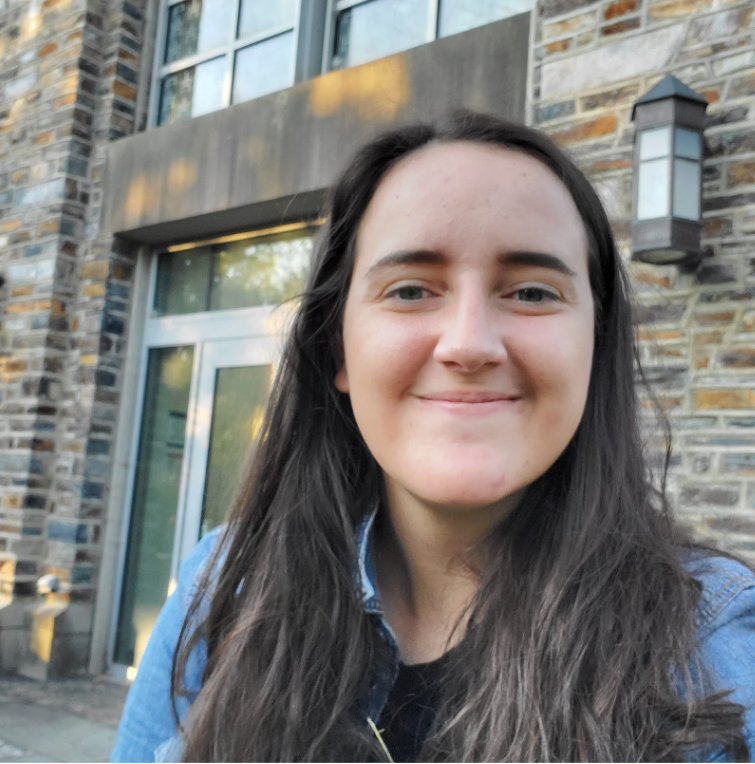
Rev. Caitlin Ware recently graduated with a M.Div. at Duke Divinity School and is from Flemington, WV. She is pursuing ordination as an elder in the West Virginia Annual Conference of the United Methodist Church. She is working with Rev. Brad Davis to help form a coalition in McDowell County, WV. Her interests are in coalfield justice work. She is a co-director for the Faith & Community in Appalachia Conference with various state Councils of Churches around the Appalachian region. She enjoys visiting state parks, kayaking, and outdoor recreation.

Rev. Brad Davis is United Methodist clergy serving as pastor of six churches in McDowell County, WV. As a native of Appalachian coal country, Rev. Davis has a passion for the revitalization of its land and people. His ministry focuses on issues related to coalfield justice and community renewal, and the church’s role in bringing that to fruition.
Presentation: Caitlin Ware & Brad Davis McDowell County Presentation
Rev. Ware and Davis’s Projects:
The Timbering Co-op Project
Hatfield Union Forestry Association is seeking to establish a timbering co-op in McDowell Co. for housing security, community food processing, silvopasture, and shelterwood harvesting. They need land and $11-17,000 for a sawmill.
The Anawalt PSD Project
The goal is to get Leckie/Anawalt area clean water access with new and repaired infrastructure. We have already been organizing this area and have distributed 2,572 cases of water (97,567 bottles) to 280+ homes in the Anawalt and Gary areas.
The EDGE Food System Project
We are working with EDGE to obtain land from Berwind Corp, Jim Justice’s Companies, and/or Norfolk Southern as land reparations for the purpose of creating a sustainable food system for McDowell Co. Edge and the timbering group would support each other’s work.
Dr. Octavia Cordon Charleston, WV

Dr. Octavia Cordon was born and raised in New York City and later migrated to Charleston, West Virginia approximately 20 years ago. She is a mother of 4, friend to many and a community advocate. She also owns her own business, Phat Daddy’s.
Octavia has spent the last decade of her career working in education, early intervention, and community outreach. Coming from a big city like New York, her goal was to bring her family to a new environment that would offer a safer alternative to what she experienced in NYC. West Virginia offered a slower pace her family was looking for to raise her babies at the time.
Presentation: Octavia Cordon Charleston Community Cafe Presentation
Ocatavia’s Projects
The Community Cafe Project
The goal of community cafes is to bring together like minded individuals to share, learn and grow. The hope is to create sustainable projects and systems that will equip the community with tools to build successful lives.
Weston Lombard, Dover Township, OH
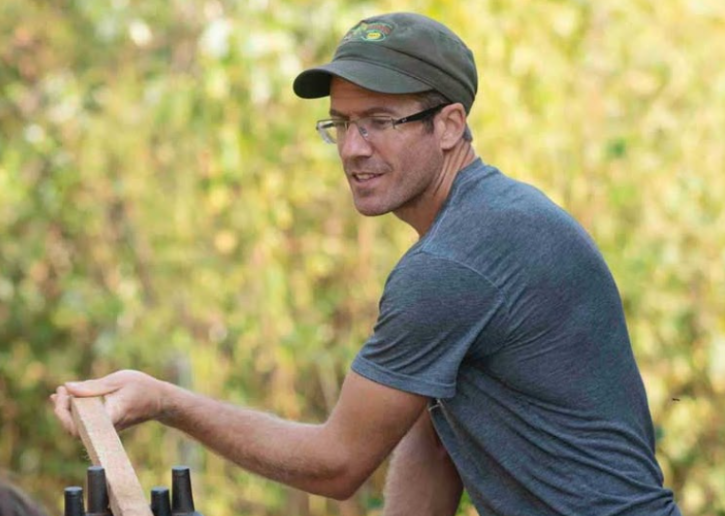
Weston Lombard is the steward of Solid Ground Farm, a 17 acre sustainable education and recreation center in Athens County. He is the co-founder of Rising Appalachian Warrior’s youth education programs and Solid Ground School, a nature-based elementary school run from the farm. For the past 18 years he has experimented with agroforestry, agroecology, and sustainable living, sharing these passions with youth and the community through classes, summer camps, and workshops. His ambition is to grow community, culture, and economy rooted in thoughtful relationship to our ecosystems.
Presentation: Weston Lombard Dover Township Background Presentation & Weston Lombard Dover Township Future of Solid Ground Presentation
Westin’s Projects
The Land-based Workforce Development and Business Incubation Project
We are working to train youth and young adults in ecological land tending practices, including sustainable agriculture, natural building, and tourism and recreation. To this end we have created a youth summer camp, an elementary school, and a young adult apprenticeship program. We are hoping to find resources to help us to continue to fund and expand the apprenticeship program as we work to grow a model for regenerative local economies.
The Ecological Community Center Project
Our sustainable educational campus is in need of another activity center where we can host special events, offer more community programs, expand our school and camp offerings, and provide services to the neighborhood. We are seeking grant funding through AMLER to increase our facilities, but are also seeking other avenues to help create our vision of a regional economic hub and education center rooted in relationship to nature.
The Local Fruit and Nut Processing Facility Project
As part of our workforce development/business incubation project we are hoping to create a regional fruit and nut processing facility that focuses on adding value to abundant native crops such as walnuts, hickory nuts, mulberries, and persimmons. The facility will feed our community center and supply the region with nutritious native food.
Capacity Building
All of our programs are passion projects grown from 15 years of dedication. We have finally reached the size where we can no longer rely on dedicated underpaid overworked staff to carry us on pure heart and devotion and are seeking a Director of Development/Grant Writer to help us achieve long term financial stability.
Wendy Tuck, Parkersburg, WV
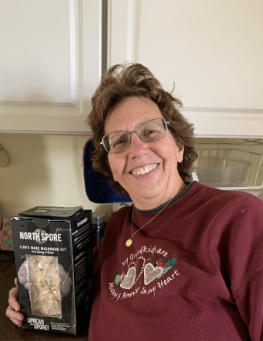
Wendy Tuck is a life-long learner with a MA in Special Education, and many years in education, social services, and non-profit management. She and her husband have been in the world of foster care since before they had their own children, and have been steady advocates and partners with those whose needs are great and resources are few. This is her first time in public office – she was elected in 2020, hit the streets running and has not stopped since. She has developed a strong and effective type of “informal governance”, informing and engaging constituents in collective action to meet real human needs, and to have good times together as well.
Presentation: Wendy Tuck Parkersburg Presentation
Wendy’s Projects:
The Close the Gap in the North Bend Trail Project
There is a 4.2 mile stretch of the North Bend Rails to Trails which goes between downtown Parkersburg and Happy Valley. This stretch is owned mostly by CSX, and the community has tried to acquire access for over 20 years. The state is going to be working on State RT 47, and having the trail connected through there may be a more possible access route. Closing the gap will allow the North Bend Rails to Trails to connect to Parkersburg, WVUP, and also, on out Rt 50 to Ellenboro, Morgantown, and ultimately Pittsburgh, which will also allow connection to the Industrial Heartland Trail.
The Strategic Plan for Meeting Wood Co. Housing Needs Project
Wood County conducted a Housing Needs Assessment in 2002, which showed a critical gap in affordable housing in all income brackets. In spite of there being many organizations and companies addressing parts of the problem, there is not a comprehensive strategy to meet the housing needs of the community. A Strategic Plan would address rentals, new construction, rehab/repair/maintenance, allowing aging-in-place, preserving historic homes, processes for demolition, the role of Urban Renewal Authority, Public Housing Authority, etc., contractors, etc. It would also identify barriers, funding, cost-effective and energy efficient building materials, models of single family vs multiple units, and also shelter options for unhoused people in the community.
The Preserving and Connecting Historic Parkersburg Project
We would like to preserve, create, recreate or restore several historic places and connect them with an outdoor bike and/walking trail through Parkersburg, such as Sumner School (the oldest free public school east of the Mississippi, created by black parents for their children), the Carnegie Library, an old Civil War Hospital, the Oil and Gas Museum, the Blennerhassett Museum, and Fort Tavenner. We would like the trail to include historic markers and bike “first aid” stations.
The Little Kanawha River Development Planning Study Project
The LIttle Kanawha River runs between the north and south sides of Parkersburg. Part of it is full of old industrial buildings which serve as storage facilities for resin and other polymer/chemical storage tanks. We would like to turn this into usable land, for trails, Kayak and fishing boat launches, a marina, waterfront recreation, farmers markets, etc. But we need to work with City and County officials as well as the owners to determine safe site remediation.
The Empty Lots for Agricultural Use Project
Due to the high number of demolitions, Parkersburg has many lots that could be developed for agricultural uses. We would need to test the soils and prepare, enrich the soil, so they could be used for growing herbs , flowers, or community gardens, and also fruits such as raspberries, blueberries, that could be used in local breweries for their seltzers. This could be part of a sustainable, circular economy.
Mary Sanders, Thomas, WV and Oakland, MD

Mary Sanders is an ordained minister of word and service in the Evangelical Lutheran Church in America. She considers herself fortunate that she was able to stay in Appalachia, though, like many others, she thought she would have to leave to find success. However, success comes in many ways. After a geology degree and 16 years with WVDEP, she went to seminary for a theology degree and found herself as a director of a non-profit. She lives on her dad’s family farm in western MD (all the way west) with her dog (Zelda) and two cats (Cat-One and Daisy). She also has a ridiculously large extended family and her spousal equivalent, Paul. Mary continues to be enthusiastic about Appalachia, rocks, environment and now adds theology and faith into the mix. She hungers for unexpected solutions to the issues she sees around her. She dreams of an Appalachia freed to be its best and most beautiful Creation.
Mary’s Projects
The Growing and Creating Community Project
Local retired folks on fixed incomes still have abilities and skills and need a more stable community to survive/thrive. Skills trading with younger folks to increase sustainability/resiliency of and relationship within community, with hope of small business start-up and/or support. First projects would be backyard/container gardening and/or art with an eye towards preserving food for own use and selling surplus and creations at local farmers markets.
The “They’ve Gone Native” Project
Native plant nursery and landscaping. Increase use of native plants in landscaping, particularly in areas that seek professional services, usually tourist locations. Possibly related to #1 and works with local FFA/4H.
The Incubation Kitchen Project
Professional kitchens are not cheap and home bakery regulations often constrain the growth of the smallest of small businesses. This would offer the kitchen space, the regulatory assistance and perhaps even market space for the development of locally grown products.
Sarah Lowry, Mahoning Valley, OH
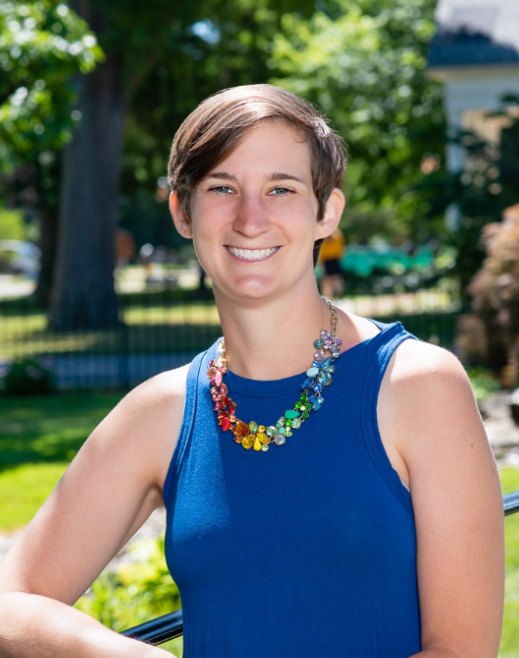
As the new senior director of Community Impact at the Community Foundation of the Mahoning Valley, Sarah brings to the position over 12 years of experience leading the Healthy Community Partnership and representing U.S. Senator Sherrod Brown in Northeast Ohio. These experiences helped Sarah cultivate strong, diverse relationships and skills related to public policy and decision-making processes. Sarah shares her time overseeing the Partnership, a the cross-sector collaborative and its work to create a healthier Mahoning Valley by addressing the region’s poor health outcomes, and supporting the Community Foundation’s strategic community leadership initiatives by making connections between people and resources needed to make lasting, positive change.
Before coming to the Community Foundation, Sarah served as Northeast Ohio Regional Representative for U.S. Senator Sherrod Brown. She received a master’s degree in American Studies with certificates in TSOL and Professional & Technical writing and bachelor’s in English literature and linguistics, both from Youngstown State University. She recently became a Ohio Certified Volunteer Naturalist and often volunteers at Mill Creek MetroParks. She also proudly serves on the boards of the Raymond John Wean Foundation, Policy Matters Ohio, the League of Women Voters of Greater Youngstown, and Friends of Fellows Riverside Gardens. To balance work and play, Sarah enjoys biking, birding, hiking, and picture-taking—any excuse to be outside.
Presentation: Sarah Lowry Mahoning Valley Presentation
Sarah’s Projects
The Mahoning Valley Energy Efficient & Healthy Homes: Affordable Housing Construction Project
This is a multifaceted approach to building affordable housing that is more energy efficient — integrating sustainable building materials and clean energy technologies — and healthy — reducing indoor air pollution and exposure to harmful materials. Plans to submit to EPA Community Change Grant to enhance/expand recent efforts to improve health and quality of life for residents in low-income neighborhoods.
The Mahoning Valley Energy Efficient & Healthy Homes: Workforce & Training Project
Using the MVEEHH initiative, this project works to provide workforce training opportunities to build a local workforce with skills for housing construction that successfully integrates clean energy technologies and sustainable materials to reduce energy costs to homeowners while creating more opportunities for affordable, healthy housing options.
The Mahoning Valley Energy Efficient & Healthy Homes: Inclusive Governance Framework Project
In order for the MVEEHH and future development projects to be successful, residents and community stakeholders must be engaged throughout the process. There are several place-based groups who have convened around the need for healthy affordable housing whose leadership is helping guide the current and future vision of this effort. We hope to use this as an example of how to incorporate community guidance in project development for our coalition and others.
Kara Scott, Carbon County, PA
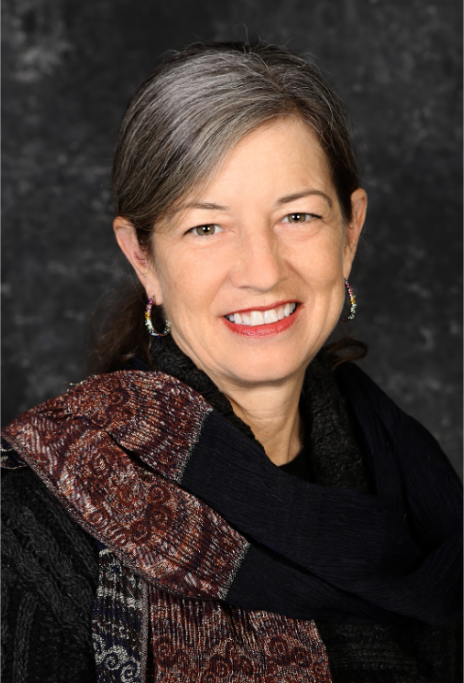
Kara Scott has been volunteering in nonprofit organizations most of her life, and community is her passion. Currently, she is serving her 4th term as a member of her borough council, is the chair and charter member of the Carbon County Council of Governments, a member of Save Carbon County, and the founder and President of Bowmanstown Area Residents Connected (BARC). BARC was proud to be nominated and receive the Environmental Partnership Award offered through the Pennsylvania Environmental Council and the Northeast Pennsylvania Environmental Partners.
She also founded the Bowmanstown Area Action Committee to fight for local rights against a trash transfer station in her borough, along the Lehigh River.
Kara is certified by iPEC for both Professional Coaching and ELI – MP (Energy Leadership Index Master Practitioner) and has degrees in psychology, communication, and recreation, but it is through decades of service and volunteering that she acquired the skills to organize and fundraise for her community.
Presentation: Kara Scott Carbon County Presentation
Kara’s Projects
The “Level Up!” Project
The goal is to build one or two multi story parking structures to consolidate parking. Complete with solar, EV charging stations, murals, and using trains and shuttle service to access ecotourism, historical sites, and small businesses.
The 55+ Community Project
The average age in Carbon County is 64 years old, but there is a lack of residential counties to provide for the upcoming swell of retirees. We want to provide residences with green construction, union jobs, and sustainably designed with minimal disturbance of green spaces.
The Multi Generational Community Center Project
We plan to establish a multi generational community center to provide childcare and senior friendly activities and enhance community wellness. There is currently a void of these services in Carbon County.
The Food Sovereignty Project
Carbon County is a food desert with little to no healthy choices despite living in a fertile farm area. Providing naturally, fresh, locally grown produce would increase the overall health and wellbeing of our citizens and their children.
